Contact Us @ +91 90808 41755
About Siva Yogi
Gurukulam
Siva Yogi Gurukulam, the training and research wing of the Tamilnadu Kalaripayattu Association, is a distinguished institution dedicated to preserving and promoting Kalaripayattu, one of India’s most ancient and revered martial art forms, along with a range of traditional Indian disciplines.
Founded and headed by Guru R. Vigneshwaran, the Gurukulam is committed to training, guiding, and certifying students and masters in various Indian art forms. With a reach that spans over 73 schools, 20 colleges, and 200 private training centers across Tamil Nadu, the institution plays a vital role in passing on India’s martial, cultural, and healing heritage to the next generation.
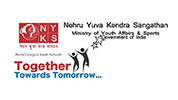
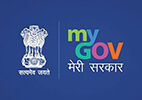
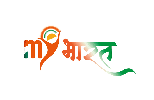
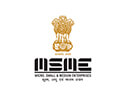


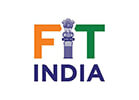
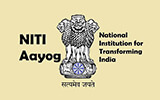

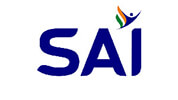
Our Disciplines
In addition to Kalaripayattu, the Gurukulam offers structured training in:
Silambam – Traditional stick fighting
Marpore (Indian wrestling) – Indigenous grappling technique
Karalai – Kalari-based body techniques
Archery – Precision and focus training
Yoga – Mind-body discipline and inner harmony
Bharatanatyam – Classical Indian dance
Mallakhambam – Rope and pole gymnastics
Karate – Modern martial art with traditional values
These disciplines are taught by qualified masters and recognized trainers, many of whom are certified under state and central government programs.
Our Training Facilities
With residential and day-training programs, the Gurukulam welcomes both local and international students of all backgrounds and ages
- Head Office – Paramakudi, Ramanathapuram District
Located on the outskirts of Ramanathapuram, this campus features a traditional mud-built Kalari, offering a natural and grounded training environment inspired by ancient design.
- Modern Studios – Madurai & Theni
State-of-the-art studios in Kadachanenthal (Madurai) and Aranmanai Pudur (Theni) cater to modern practitioners while maintaining the spiritual essence of the art.
Activities & Outreach
- Regular Classes & Workshops
- Public Performances & Cultural Events
- Research & Publication of Training Materials
- Kalari & Marma Therapy for orthopedic and lifestyle ailments
Siva Yogi Gurukulam stands as a living temple of tradition—empowering students with discipline, strength, and purpose through the wisdom of ancient Indian arts.
Our Legacy
From children as young as 5 to adults in their 40s, students from all over India—and even abroad—train at Siva Yogi Gurukulam. Our students have consistently earned top honors in state and national Kalaripayattu competitions, and many have gone on to become performers, healers, and cultural leaders.
Notably, renowned artists and film personalities have trained at the Gurukulam, further highlighting its credibility and cultural impact.

History of Kalaripayattu
Kalaripayattu is one of the oldest martial arts in the world, with origins tracing back over 3,000 years. References to martial practices in the Vedas and ancient folklore suggest that Lord Parashurama, an avatar of Lord Vishnu, founded this sacred combat art.
The word Kalaripayattu is derived from two Malayalam words: “Kalari” (training ground) and “Payattu” (fight or practice). Historically, it was practiced by warriors across South Indian dynasties—including the Cholas, Cheras, and Pandyas—especially during the prolonged wars among these kingdoms, which helped refine the art into a structured combat system.
During its golden era (13th–16th centuries), Kalaripayattu was a way of life in Kerala and parts of Tamil Nadu. Children as young as seven were initiated into training. Its techniques, inspired by animal movements, emphasize agility, strength, and precision.
Under British colonial rule, the practice of martial arts was banned, and Kalaripayattu was forced underground. Despite these challenges, devoted practitioners preserved the tradition in secrecy across rural regions. After India’s independence, the art experienced a revival, gradually regaining its lost glory.
Today, Kalaripayattu is not only a martial discipline but also a symbol of India’s cultural resilience, blending combat, healing, and spiritual philosophy.
Kalaripayattu Today
Today, Kalaripayattu is witnessing a powerful revival. It is widely practiced in Kerala, parts of Tamil Nadu, Karnataka, and even Sri Lanka. It has also become a source of livelihood for many, with Kalari performances attracting both Indian and international audiences.
Modern practitioners continue to uphold its values—discipline, agility, focus, and healing—making it relevant in today’s world. More than a martial art, Kalaripayattu is a living tradition, a symbol of cultural resilience and spiritual strength, carrying forward the legacy of India’s warrior heritage.

Types of Kalaripayattu
Kalaripayattu, often called the mother of all martial arts, is more than a combat system—it is a way of life that blends physical skill, mental discipline, and spiritual growth. Over time, it has evolved into four distinct regional styles, each reflecting the culture and terrain of its origin.
Vadakkan (Northern Style)
Originating in North Kerala, this style is known for powerful strikes, strong stances, and acrobatic movements. Vadakkan Kalaripayattu emphasizes weapon mastery, physical conditioning, and high-energy combat techniques.
Thekkan (Southern Style)
From South Kerala, Thekkan style is marked by its fluid, graceful movements and rhythmic choreography. It focuses on breath control, flexibility, and internal energy, often blending martial technique with artistic expression.
Madhya Kerala (Central Style)
A hybrid of Vadakkan and Thekkan, the Central Kerala style combines strength and agility, offering a balanced approach to training. Practitioners develop both combat power and refined movement, drawing from the best of both worlds.
Kadathanadan
Developed in forest regions, Kadathanadan Kalaripayattu is known for its stealth, adaptability, and natural weapon use. It emphasizes survival tactics, close-quarter combat, and environmental awareness, reflecting its roots in wilderness training.
